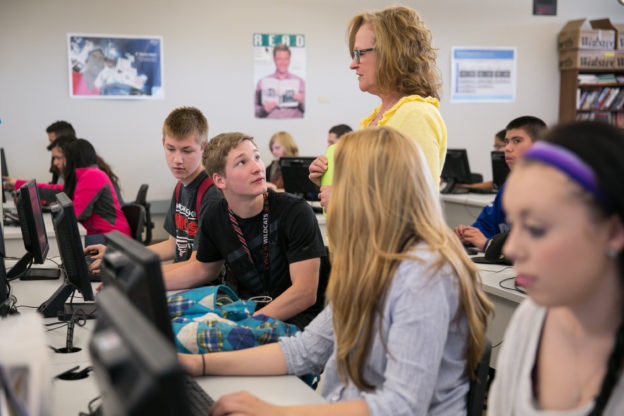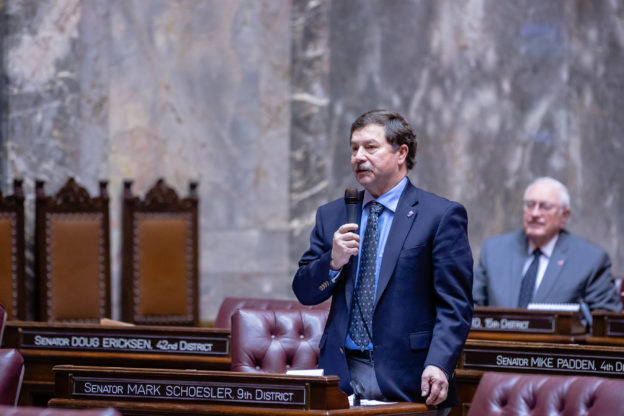Sen. Mark Schoesler opposes a suggestion by Washington’s highest-ranking elected education official that the state should cancel the testing of student learning levels.
During last week’s Washington State Board of Education meeting in Spokane, state Superintendent of Public Instruction Chris Reykdal said that using tests to assess the true level of learning students are receiving “means nothing” and that, if he decides he has the authority, he plans to cancel state testing of public K-12 students.
At about the 1:00:57 mark of this TVW video of last week’s meeting, Reykdal said, “I am trying to figure out if I have the authority to exit us (from testing) on my own, or if that needs something else.”
Schoesler, who represents eastern Washington’s 9th Legislative District and is the father of a public-school teacher, criticized Reykdal for wanting to pull the plug on state testing of students to assess how much they have learned.
“In just over the past two years, student learning in Washington has been severely disrupted due to COVID-19, which caused so many of our students to fall behind,” said Schoesler, R-Ritzville. “And now Superintendent Reykdal, the top elected education official in our state, wants to cancel state testing of students? The Legislature should decide on whether to keep such testing in place. Getting rid of these tests would be a disservice to students and parents. We need student assessment of learning more than ever to see how students are doing and where they need to improve.”
Schoesler said one of Reykdal’s reasons for eliminating state testing of students, that colleges don’t look at them in admitting students, is wrong.
“Contrary to what SPI Reykdal suggests, our state has never implemented assessment tests so that colleges can see how students are doing. These tests have been conducted so that we have objective measures for reading, writing and math. How can we know if Washington students can read, write and do math at their grade level if we don’t assess them? Parents and taxpayers deserve to know if their children can read, write and do math at grade level, as well as how their children and their schools compare with other students and schools. If we eliminate these state tests, how else will we assess how well students are learning?”
This link, provided by the Office of Superintendent of Public Instruction, shows the state and federal tests that Washington K-12 public school students take.
Schoesler leery of SPI’s new plan to reduce timber revenue for school construction
Schoesler also voiced concerns with Reykdal’s new plan, announced today, to reallocate funding from the state’s K-12 Common School Trust, which is partially funded by timber revenues to help fund construction of public schools in Washington. During a news conference today, Reykdal said timber revenue from timber harvests in rural communities would stay in those communities.
“While I appreciate Superintendent Reykdal’s concern about long-term funding of school construction projects in Washington communities, I’m concerned how it would impact rural school districts, as well as some urban districts” said Schoesler, the Senate Republican leader on the Senate capital budget. “It is important to know that some rural areas, such as Franklin County, have no timber harvests. Pasco, located in Franklin County, has been one of the fastest-growing school districts in the state. Statewide, timber harvests have decreased 50%, which has really hurt small towns.
“What I wanted was for our state’s schools superintendent to show how his agency would spearhead more efficiencies with school construction projects in our state so taxpayers can receive the most value for their tax dollars. Besides efficiencies, we should harvest more timber from state lands. Unfortunately, Superintendent Reykdal once again is not sufficiently addressing our concerns about seismic and tsunami problems facing some school districts,” added Schoesler.













